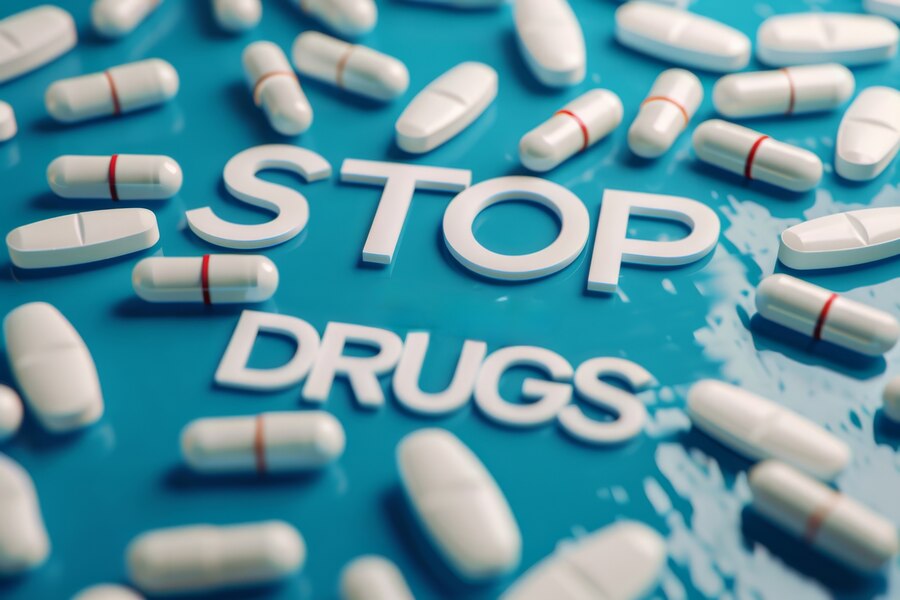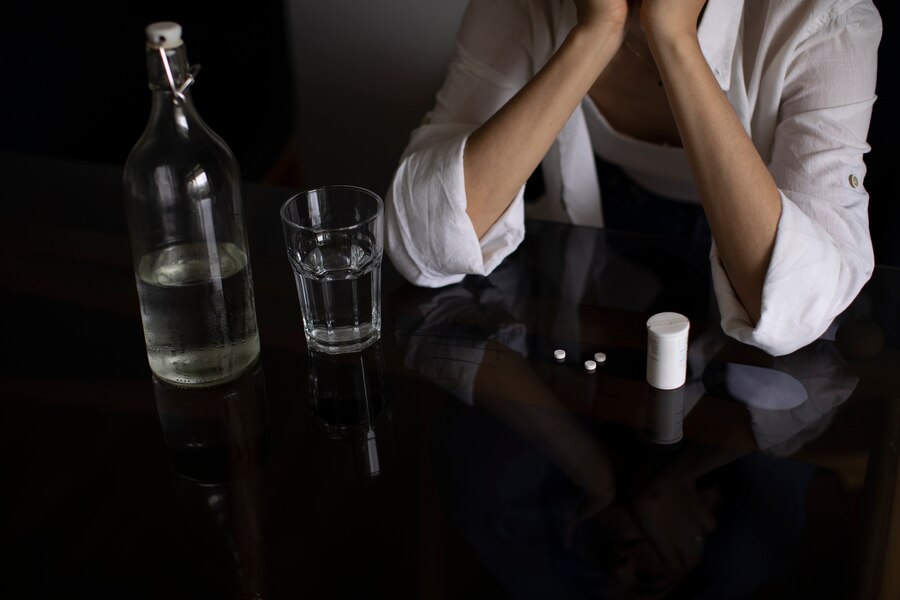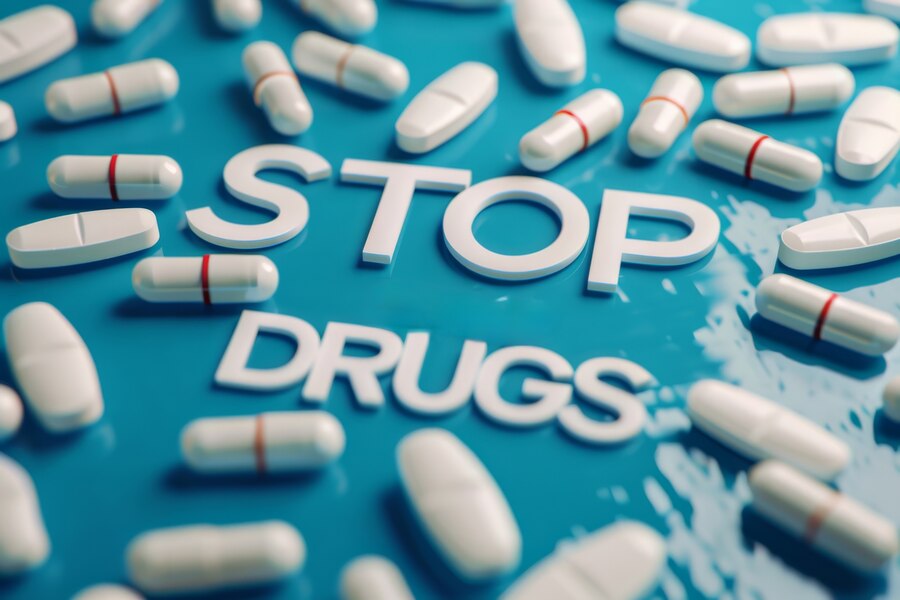Substance abuse is a pervasive issue that affects millions of individuals and their loved ones worldwide. When one or both partners in a relationship struggle with substance abuse, the consequences can be particularly devastating. The emotional, psychological, and physical toll it takes can lead to a breakdown in communication, trust, and intimacy, putting immense strain on the relationship.
Couples Rehabs, a specialized form of treatment, seeks to address the unique challenges faced by couples grappling with substance abuse. By offering a supportive and collaborative environment, these programs aim to not only help individuals overcome their addictions but also to strengthen and rebuild their relationships. In this article, we will delve into what substance abuse is, explore its impact on individuals and couples, and examine how couples rehabs can provide a pathway to recovery and renewed connection.
Understanding the multifaceted nature of substance abuse and its repercussions is crucial for comprehending the importance of targeted interventions like couples rehabs. With the right support and treatment, couples can navigate the tumultuous journey of addiction recovery together, emerging stronger and more united.
Understanding Substance Abuse
Substance abuse is a complex and multifaceted issue that affects millions of individuals and their loved ones. Understanding what substance abuse entails is crucial for recognizing its signs and addressing its consequences. This section delves into the definition and types of substance abuse, the causes and risk factors associated with it, and its profound effects on individuals and their relationships.
Definition and Types
Substance abuse refers to the harmful or hazardous use of psychoactive substances, including alcohol and illicit drugs. It encompasses a range of behaviors characterized by the excessive and compulsive consumption of substances, which leads to significant impairment or distress. The Diagnostic and Statistical Manual of Mental Disorders (DSM-5) categorizes substance abuse under “Substance Use Disorders” (SUDs), highlighting patterns of symptoms resulting from the use of a substance that one continues to take, despite experiencing problems as a result.
There are various types of substances commonly associated with abuse, including:
- Alcohol: Excessive drinking that leads to health complications, impaired judgment, and risky behaviors.
- Prescription Medications: Misuse of prescribed drugs such as opioids, benzodiazepines, and stimulants.
- Illicit Drugs: Use of illegal substances like heroin, cocaine, methamphetamine, and marijuana.
- Over-the-Counter Medications: Abuse of easily accessible drugs such as cough syrups and cold medications.
Causes and Risk Factors
Substance abuse does not have a single cause; it arises from a combination of genetic, environmental, psychological, and social factors. Understanding these causes and risk factors can help in identifying those at higher risk and developing effective prevention and intervention strategies.
- Genetic Factors: A family history of substance abuse can increase an individual’s susceptibility due to inherited traits.
- Environmental Factors: Exposure to environments where substance use is prevalent or normalized, such as certain social circles or communities, can lead to abuse.
- Psychological Factors: Mental health disorders like depression, anxiety, and trauma are closely linked with substance abuse as individuals may use substances to cope with their symptoms.
- Social Factors: Peer pressure, stress, and societal expectations can contribute to the initiation and continuation of substance use.
Effects on Individuals and Relationships
The impact of substance abuse extends beyond the individual, affecting their physical and mental health, as well as their interpersonal relationships.
- Physical Health: Chronic substance abuse can lead to severe health issues, including liver disease, cardiovascular problems, respiratory issues, and neurological damage.
- Mental Health: Substance abuse is often associated with mental health disorders, creating a vicious cycle where each condition exacerbates the other.
- Relationships: Substance abuse can strain relationships, leading to conflicts, communication breakdowns, and erosion of trust. It can cause significant emotional and psychological distress to partners, children, and other family members.
Recognizing the signs and understanding the dynamics of substance abuse is the first step toward addressing its far-reaching consequences. In the following sections, we will explore how substance abuse specifically impacts couples and the role of specialized rehabs in facilitating recovery and rebuilding relationships.
Impact on Couples
Substance abuse is a pervasive issue that not only affects the individual grappling with addiction but also significantly impacts their intimate relationships. When one or both partners in a couple are struggling with substance abuse, the ramifications extend far beyond the individual, infiltrating various aspects of their shared lives. This section delves into the emotional and psychological effects, the breakdown of communication, and the trust issues that often emerge as a consequence of substance abuse within a relationship.
Emotional and Psychological Effects
Substance abuse often brings a myriad of emotional and psychological challenges that can strain a relationship to its breaking point. For the partner struggling with addiction, feelings of guilt, shame, and inadequacy are common. These emotions can be incredibly taxing and may lead to further substance use as a misguided coping mechanism, thus perpetuating a vicious cycle. On the other hand, the sober partner may experience a range of negative emotions, including frustration, helplessness, and resentment. The emotional rollercoaster that accompanies living with an addicted partner can lead to chronic stress, anxiety, and even depression.
The mental health of both partners is often jeopardized, affecting their ability to support each other and make sound decisions. The constant emotional turmoil can create a hostile environment, making it challenging for the couple to maintain a healthy, loving relationship. Over time, the emotional and psychological toll can erode the foundational elements of their partnership.
Communication Breakdown
Effective communication is the cornerstone of any healthy relationship. However, substance abuse can severely impede open and honest dialogue between partners. The addicted partner may become secretive or dishonest about their substance use, leading to mistrust and suspicion. Conversations may become fraught with tension and conflict, often revolving around the addiction and its consequences.
Furthermore, the sober partner might find it difficult to express their concerns without triggering defensive or aggressive responses from the addicted partner. This breakdown in communication can lead to misunderstandings, misaligned expectations, and a lack of emotional intimacy. Without effective communication, resolving conflicts and working collaboratively towards solutions becomes nearly impossible, further exacerbating the disconnect between partners.
Trust Issues
Trust is another fundamental pillar of a healthy relationship that is often shattered by substance abuse. The addicted partner’s actions, such as lying, stealing, or breaking promises, can severely damage the trust that the sober partner has in them. Trust issues may arise when the sober partner discovers hidden stashes of substances, unexplained absences, or financial discrepancies due to substance-related expenditures.
Rebuilding trust is an arduous process that requires time, effort, and consistent behavior change. However, the cycle of addiction can make it challenging for the sober partner to believe in the possibility of lasting change. Trust issues can lead to heightened vigilance, constant worry, and a reluctance to invest emotionally in the relationship. This erosion of trust creates an environment of insecurity and instability, further straining the partnership.
In summary, substance abuse casts a long shadow over couples, affecting their emotional well-being, communication, and trust. Addressing these issues is crucial for the survival and health of the relationship, making specialized interventions like couples rehabs essential. In the next section, we will explore how couples rehabs offer a comprehensive approach to healing and rebuilding relationships affected by substance abuse.

Couples Rehabs: An Overview
Couples rehabs are specialized treatment facilities that focus on helping partners navigate the challenging journey of overcoming substance abuse together. Unlike traditional rehab centers, which typically address individual needs, couples rehabs offer a unique approach that recognizes the interconnected nature of relationships and the impact of addiction on both partners. This comprehensive approach aims to heal not just the individuals but also the relationship, fostering a supportive environment for long-term recovery.
Joint Therapy Sessions
One of the cornerstone features of couples rehabs is joint therapy sessions. These sessions are designed to provide a safe space for both partners to openly discuss their struggles, fears, and aspirations. Facilitated by trained therapists, joint therapy helps couples identify destructive patterns and develop healthier ways of interacting. The therapy often involves techniques such as cognitive-behavioral therapy (CBT), which helps individuals understand and change their negative thought patterns, and emotionally focused therapy (EFT), which aims to rebuild emotional bonds and improve attachment.
Joint therapy sessions also focus on teaching couples effective communication skills. By learning how to express their feelings and needs more constructively, partners can reduce conflicts and misunderstandings, paving the way for a more supportive and harmonious relationship.
Support Systems and Groups
In addition to joint therapy, couples rehabs offer access to various support systems and groups. These support networks can be incredibly beneficial, providing couples with the opportunity to connect with others who are facing similar challenges. Group therapy sessions, for example, allow couples to share their experiences and learn from the journeys of others. This collective wisdom and shared understanding can be a powerful motivator, helping couples feel less isolated and more hopeful about their recovery.
Support systems also extend beyond the rehab facility. Many couples rehabs provide resources for ongoing support, such as alumni groups, online forums, and local community meetings. These resources ensure that couples continue to receive encouragement and guidance long after they leave the rehab center, which is crucial for maintaining sobriety and strengthening their relationship.
Rebuilding Trust and Communication
One of the most significant hurdles for couples dealing with substance abuse is rebuilding trust and communication. Addiction often leads to broken promises, lies, and emotional distance, which can severely damage the trust between partners. Couples rehabs address these issues head-on by incorporating trust-building exercises and communication workshops into their programs.
Trust-building exercises may include activities that require partners to rely on each other and demonstrate commitment to their recovery journey. Communication workshops, on the other hand, focus on teaching couples how to listen actively, express empathy, and resolve conflicts without resorting to blame or aggression.
By emphasizing the importance of trust and communication, couples rehabs help partners develop a stronger, more resilient bond. This renewed connection not only enhances their emotional well-being but also provides a solid foundation for tackling future challenges together.
In summary, couples rehabs offer a holistic approach to treating substance abuse, addressing both individual and relational aspects of recovery. Through joint therapy sessions, robust support systems, and focused efforts on rebuilding trust and communication, these specialized facilities empower couples to overcome addiction and build a healthier, more fulfilling life together.
Substance Abuse Treatment at Couples Rehabs
Substance abuse is not an isolated issue; it profoundly affects both individuals and their relationships, especially within the context of a couple. Understanding the various dimensions of substance abuse, from its types and causes to its far-reaching effects on emotional and psychological well-being, is crucial in addressing the problem effectively. For couples grappling with substance abuse, the impact is often magnified, leading to communication breakdowns, trust issues, and severe emotional distress.
Couples rehab centers offer a lifeline, providing specialized programs designed to address the unique challenges faced by partners in recovery. Through joint therapy sessions, supportive group environments, and targeted strategies for rebuilding trust and communication, these facilities aim to heal both the individual and the relationship. The journey to recovery is undoubtedly arduous, but with the right support and resources, couples can emerge stronger, more connected, and better equipped to face the future together.
In conclusion, tackling substance abuse requires a comprehensive approach that includes both individual and relational healing. Couples rehabs stand at the forefront of this holistic approach, offering hope and a pathway to recovery for those willing to take the courageous step forward. By investing in these specialized programs, couples can find a renewed sense of trust, improved communication, and ultimately, a healthier and more fulfilling relationship.

Understanding Substance Abuse
- What is the definition of substance abuse?
Answer: “What is Substance Abuse?” refers to the harmful and problematic use of substances, including alcohol, drugs, or prescription medications. It goes beyond occasional use and can lead to dependence, addiction, and health problems.
- How can I tell the difference between substance use and abuse?
Answer: Substance use becomes abuse when it disrupts your daily life. Signs include: using despite negative consequences, neglecting responsibilities, experiencing withdrawal symptoms when stopping, and needing more and more of the substance to experience the same effect.
- What are some of the common substances abused by couples?
Answer: Alcohol, prescription pain medications (opioids), stimulants like cocaine or Adderall, and illegal drugs like heroin are all commonly abused substances. Couples Rehab Centers can help address abuse of any kind.
Impact on Relationships
- How can substance abuse affect my relationship?
Answer: “What is Substance Abuse?” extends to its impact on relationships. It can lead to communication problems, trust issues, financial strain, and increased conflict. Couples Rehab Centers specialize in helping couples heal from addiction’s impact.
- What are some signs that my partner might be abusing substances?
Answer: Watch for secrecy around substance use, changes in mood or behavior, neglecting responsibilities, financial problems, and physical changes associated with specific substances.
- How can substance abuse trigger codependency in relationships?
Answer: Codependency is when one partner enables the other’s substance abuse. Couples Rehab Centers can help couples break these patterns and establish healthier dynamics.
Seeking Help
- What are some benefits of seeking help at a Couples Rehab Center for substance abuse?
Answer: Couples Rehab Centers offer specialized programs to address both addiction and relationship issues. Couples can learn healthy coping mechanisms, improve communication, and heal from the past to build a stronger foundation for the future.
- Can Couples Rehab Centers help even if only one partner is actively abusing substances?
Answer: Yes! Supportive partners are crucial to recovery. Couples Rehab Centers can offer therapy and education to help both partners understand addiction and support recovery efforts.
- What happens during couples rehab treatment for substance abuse?
Answer: Couples Rehab Centers typically offer individual therapy, couples therapy, group sessions, and educational workshops. Treatment plans are personalized to address specific needs.
- Will couples rehab treatment be confidential?
Answer: Confidentiality is a priority at Couples Rehab Centers. Programs adhere to privacy laws to protect your personal information.















Recent Comments